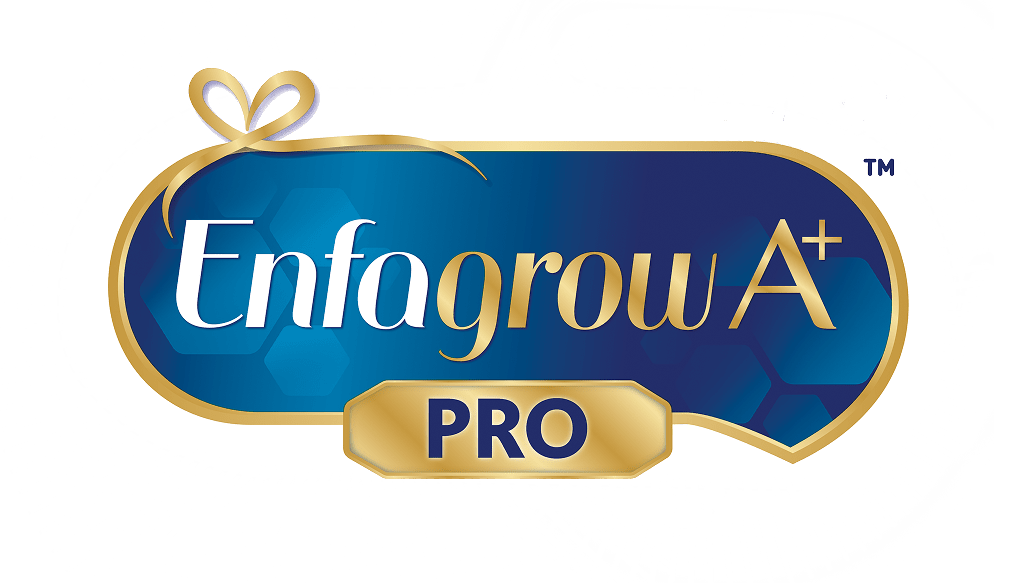
The journey of pregnancy is a wonderful time full of expectation and excitement. As a mom-to-be, it is even more important to take care of your health now, which includes being attentive to the foods and beverages you consume. While there are some things to avoid while pregnant, it's vital to remember that this is a time to fuel both yourself and your growing child. While eating for two may be fun, it is critical to evaluate what you eat and drink, especially as there are some foods to avoid when pregnant. If you’re expecting, learn what’s safe and what’s not, especially:
- Fish and seafood to avoid
- Meats to avoid
- Beverages to avoid
- Other important nutrition tips
1. Overview
2. Foods to Avoid When Pregnant
3. List of frequently asked questions for moms and dads:
Staying away from harmful foods is integral to one's health. This is more so in the case of pregnant women. What an expectant mother eats, directly influences the development of the foetus. Moreover, being pregnant places both mother and baby at greater risk of contracting foodborne illnesses¹. Hence, it is important to know what food to avoid during pregnancy, to ensure the well-being of both the mom and her child, up until childbirth.
Foods to Avoid When Pregnant
Here is a list of foods to avoid during pregnancy: Mothers-to-be, take note!
-
Seafood high in mercury
For expectant women, seafood can be a fantastic source of protein and omega-3 fatty acids. However, some fish and shellfish have high mercury content, which can be bad for your baby's health². High-mercury fish can harm a baby’s developing brain and nervous system². Shark, king mackerel, swordfish, and tilefish are all foods to avoid when pregnant. The likelihood of mercury content in fish increases with size and age². However, some varieties of seafood with low-mercury content can be eaten in moderation. Taking eight to 12 ounces (two to three servings) of sardines², anchovies, catfish, salmon, shrimp, tilapia, and light canned tuna is permissible.
Besides high-mercury seafood, pregnancy foods to avoid at all costs include raw or uncooked seafood and shellfish. This is because they might contain harmful bacteria or viruses³. Examples of these foods to avoid when pregnant include sushi, sashimi, raw oysters, scallops, and clams. Fish should be properly cooked, separated into flakes, and appear opaque when prepared. Shrimp, lobster, and scallops should be cooked until they are milky white, while clams, mussels, and oysters, until their shells open³.
-
Undercooked meat, poultry, and eggs
In an effort to stave off bacterial food poisoning, undercooked meat, poultry, and eggs are hazardous and high on the list of foods to avoid when pregnant. Salmonella, coliform bacteria, and toxoplasmosis are a few dangerous bacteria that could be present in undercooked meat⁴. Uncooked eggs in Caesar salad dressing, mayonnaise, and batters can potentially contain harmful pathogens. Before eating, it is best to fully cook all meats and poultry to an internal temperature that is safe, as determined by a food thermometer⁵.
-
Organ meats
While organ meats are a great source of nutrients, preformed vitamin A derived from animals should not be consumed in excess when pregnant. This is simply because an excess of preformed vitamin A can cause congenital abnormalities and miscarriage, especially in the first trimester of pregnancy¹².
-
Unpasteurized foods
Consuming soft cheeses made from unpasteurized milk can also spell disaster during pregnancy. Unpasteurized dairy and juice may contain harmful pathogens such as listeria and E. coli, which may lead to foodborne illnesses⁶. Always check the product labels to ensure that they are free from harmful ingredients prior to purchase. Cheddar, Swiss, and other types of hard cheese are suitable substitutes for soft cheeses, which are one of the foods to avoid when pregnant.
-
Unwashed fruits and vegetables
To get rid of disease-causing bacteria that exist in the soil where the crops are grown, fruits and vegetables must be thoroughly cleaned. Pregnant women must steer clear of particular types of sprouts, such as alfalfa, clover, radish, and mung bean, as they may contain dangerous bacteria like Shiga toxin-producing E. coli (STEC), listeria, and salmonella⁷.
-
Durian
Some soon-to-be moms may have concerns on the safety of consuming durian during pregnancy. However, studies have shown that durian is good for pregnant women¹⁴. The fruit is high in energy, vitamins, and minerals. Its soft, easily digestible flesh contains carbohydrates that deliver an instant energy boost. Devoid of harmful cholesterol and lipids, durian is also high in dietary fibre, which can aid with constipation prevention and detoxification. While it is generally safe to consume durian during pregnancy, it is important to keep in mind that due to its high calorie and potassium salt content, moderation is still advised 13.
-
Coffee
Some studies have shown that caffeine in moderation during pregnancy is permissible⁸. However, there are also studies linking it with a number of pregnancy complications, such as low birth weight and miscarriage. This is due to caffeine's ability to pass through the placenta and enter the foetus, where it may have harmful effects - hence its inclusion in this list of foods to avoid when pregnant. Experts recommend expecting mothers consume no more caffeine than 200 milligrammes (mg) in two cups of coffee per day⁸. Then again, it is still recommended to substitute water, pasteurised milk, or juice in place of caffeinated beverages.
-
Herbal tea
Herbal teas, in general, contain little or no caffeine, but they should be taken with caution during pregnancy. This is especially important because there isn't enough research to prove that herbal teas are completely safe for expecting mothers⁹. Herbs may also contain substances that can cause miscarriage, premature birth, uterine contractions, or injury to the foetus⁹. As a rule of thumb, it is best not to take any herbal products without first talking to a healthcare professional to be absolutely certain about the types of drinks and foods to avoid when pregnant.
-
Alcohol
Alcohol of any kind and in any quantity should be avoided throughout the entire pregnancy. Alcohol consumption during pregnancy has been found to negatively impact the foetus' growth, which is why it is considered one of the foods to avoid when pregnant. Alcohol ingested by the mother passes directly into the baby's bloodstream through the umbilical cord and stays there twice as long¹º. The harmful effects of alcohol on the foetus can cause birth malformations, cardiac issues, low birth weight, miscarriage, and stillbirth¹¹.
Pregnancy is the ideal time to begin consuming nutrient-rich meals to benefit both you and your developing baby. Numerous vital nutrients, such as protein, folate, choline, and iron, will need to be consumed in greater quantities. Your pregnancy diet should focus on meals with a variety of nutrients to meet the needs of both you and your unborn child.
Being aware and making note of certain foods to avoid during pregnancy is vital for the health of both mother and baby. Keep a checklist handy when you go grocery shopping. This will help you choose wholesome, healthy foods to ensure that you stay in good spirits and that your baby is born healthy. Please contact your healthcare practitioner if you have any queries.
Do you want to learn more about what to eat during pregnancy? Join the Enfamama A+ Club today and get expert tips and support from other parents. Unlock a world of privileges and benefits, which include FREE samples, exclusive vouchers, promotions, and many more!
List of frequently asked questions for moms and dads:
We know you have more questions about the dos and don'ts of eating during pregnancy. Check out some of the most commonly asked questions about foods to avoid when pregnant⁵.
-
How much should I consume, in terms of calories, when pregnant?
You’ve probably heard the saying, “You’re eating for two!” But that doesn’t mean you should be eating 1,200 more calories. Doctors advise not more than 300 calories be added to your diet during pregnancy. But these shouldn’t come from candies, chips, or junk food! Instead, aim for a healthy balance of fruits, vegetables, grains, and protein. Talk to your doctor about what is best for you.
-
Should I stop taking prenatal vitamins once I’m pregnant?
When you were preparing to conceive, your doctor may have prescribed prenatal vitamins such as folic acid. Folic acid has been found to help prevent neural tube defects in babies. You may have been asked to include other prenatal vitamins to meet your nutritional requirements. Please note, however, that supplements and vitamins do not replace a healthy diet. The type and dosage of vitamins you should be taking during your pregnancy are best advised by your doctor.
-
How should I clean and prepare my food when I’m pregnant?
When you're pregnant, it's essential to practise good food hygiene while preparing your meals. Start by thoroughly washing all raw fruits and vegetables before cooking or consuming them. It's also crucial to sanitise all surfaces, such as tables, countertops and kitchenware, to prevent contamination. When cooking meat, ensure it reaches a safe internal temperature by using a food thermometer. Refrigerating leftovers promptly is another important step to avoid bacterial growth. If you have a doubt about the freshness or expiration of a food item, it's best to err on the side of caution and avoid consuming it.
Related articles:
- Gestational Diabetes : How to manage it during pregnancy
- 4 pregnancy breakfast ideas
- 6 Keys to Healthy Diet for Pregnancy - What Is A Healthy Pregnancy Diet
- Best pregnancy products for prenatal and postnatal mothers
- Pregnancy Nutrition: The Healthiest Food to Eat During Pregnancy
Expert Resource:
Dr. Raymond Choy Wai Mun
(MCR 18097A)
MBChB (UK), Aviation Medicine (Singapore)
-
While Your Pregnant Tips from Food Safety for Moms to Be. (n.d.) Retrieved 15 October 2020. https://www.fda.gov/food/people-risk-foodborne-illness/while-youre-pregn....
-
People at risk: Pregnant Women. (n.d.) Retrieved 15 October 2020. https://www.foodsafety.gov/people-at-risk/pregnant-women.
-
Pregnancy Nutrition: Foods to Avoid During Pregnancy. (n.d.) Retrieved 15 October 2020. https://www.mayoclinic.org/healthy-lifestyle/pregnancy-week-by-week/in-d....
-
Foods to Avoid While Pregnant. (n.d.) Retrieved 15 October 2020. https://americanpregnancy.org/healthy-pregnancy/pregnancy-health-wellnes....
-
Nutrition During Pregnancy. (n.d.) Retrieved 15 October 2020. https://www.hopkinsmedicine.org/health/wellness-and-prevention/nutrition....
-
Foods to Avoid During Pregnancy. (n.d.) Retrieved 15 October 2020. https://www.nhs.uk/conditions/pregnancy-and-baby/foods-to-avoid-pregnant/.
-
Raw Seed Sprouts are a Risk to Eat (n.d.) Retrieved 15 October 2020. https://www.mpi.govt.nz/food-safety/food-safety-for-consumers/is-it-safe....
-
The Nutrition Source: Other Healthy Beverage Options. (n.d.) Retrieved 15 October 2020. https://www.hsph.harvard.edu/nutritionsource/healthy-drinks/other-health....
-
Herbs and Pregnancy. (n.d.) Retrieved 15 October 2020. https://americanpregnancy.org/healthy-pregnancy/is-it-safe/herbs-and-pre....
-
Foetal Alcohol Spectrum Disorders (FASD). (n.d.) Retrieved 15 October 2020. https://www.cdc.gov/ncbddd/fasd/facts.html.
-
Alcohol Use and Pregnancy. (n.d.) Retrieved 15 October 2020. https://www.cdc.gov/ncbddd/fasd/alcohol-use.html.
-
Is it safe to eat liver during pregnancy By Colleen de Bellefonds, writer | Medically reviewed by Erin Hinga, M.S., R.D., registered dietitian | July 30, 2021. https://www.babycenter.com/pregnancy/diet-and-fitness/is-it-safe-to-eat-liver-during-pregnancy_10404911.
-
Nutrition During Pregnancy—Eating Right for Two Reviewed 28 Jun 2021 https://www.healthhub.sg/live-healthy/928/pregnancy-nutrition-during-pregnancy-eating-right-for-two.
-
7 Amazing Health Benefits Of Eating Durian During Pregnancy. Reviewed by Reda Elmardi, RD. By Ria Saha, B.Tech., July 12, 2023. https://www.momjunction.com/articles/benefits-of-eating-durian-during-pregnancy_00363658/.




